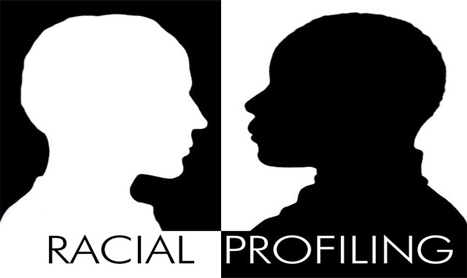
By Kimetha Hill
Staff Writer
The scene is all too familiar. A person of color gets pulled over by the police. It’s a “routine traffic stop.” Or maybe they “fit the description.” The police car pulls up behind the vehicle signaled to stop. The officer approaches the car and the driver rolls down the window. First words from the officer, “Are you on probation or parole?”
In “America’s Finest City,” people of color have experienced overt and covert forms of racism for decades. In San Diego, known for years as the “Mississippi of the West,” African Americans, Asians, Hispanics, refugees and immigrants from all over the world have been subjected to humiliation – notably from the San Diego Police Department.
In response to the outcry from the community of color on racial profiling by the San Diego Police Department and a recent investigation conducted regarding their policy on collecting racial data for traffic stops, Councilwoman Myrtle Cole, who represents District 4, requested the presence of SDPD at the City Council’s public safety and livable neighborhoods committee meeting held last Wednesday, January 29.
SDPD Police Chief William Lansdowne and Assistant Chief Shelley Zimmerman were present to provide a brief overview of initiatives the department has put into place to foster relationships between the department and communities of color. However, the fact remains that there is a major disconnect between the SDPD and San Diego’s communities of color.
The small conference room was packed on Wednesday afternoon to standing room only as people lined the walls holding signs that said, “Why do I always fit the description,” and “I have been racially profiled.” Councilwoman Cole commented, “The turnout today is proof that racial profiling continues to be a sensitive issue.”
Over 25 speakers signed up to give credence to discrimination that continues to happen. One gentleman, who lives in Rancho Penasquitos, shared his experience of being followed by a police car every day from the 15 freeway to his home. Finally he went down to the local office to address the matter – and used humor to diffuse the situation. However, many cases don’t work out in favor of the person discriminated against so easily.
And racial discrimination is most certainly not relegated to males of color.
“As an African American woman and college educated, it’s humiliating to be stopped or be questioned whether I’m guilty or innocent,” said Christina Griffin a community activist. “It’s humiliating for that same kind of treatment to be mirrored and projected all my life. Like so many people in this room, so many young men and even African American professionals you may know yourself – it’s a shame how many of them have a story about being pulled over for no reason.”
Lei-Chala Wilson, President of the NAACP offered some poignant comments as well about San Diego’s racial profiling issue, and how it truly hits home for her. “We don’t have a ‘stop and frisk’ problem, we have a ‘are you on probation or on parole’ problem. And that’s the most common question that is asked to our youth, to our men, my brothers, my uncles, my nephews. And Chief Lansdowne gave me his word on the policy change, that the first word out of an officer’s mouth would not be ‘are you on probation or parole.’”
Unfortunately, and dishearteningly, instances of racial discrimination by the police department are experienced by youth as well as elders within the community. Ramla Sahid spoke of the persistent racial discrimination attacks experienced by elders within her own community simply walking across the street from the Mosque after morning prayer to the 7-Eleven to have coffee. What ensues is officers pulling up to the men and criminalizing them, accusing them of loitering. “We’ve even had instances when an elder was stopped in the community hub and asked to open his mouth while an officer took the picture with his cell phone. This is humiliating,” she expressed, visibly emotional. “This is a community elder, well respected in the Somali community. I propose that we not only track data on traffic stops, but we also track pedestrian stops.” The audience applauded loudly after Sahid’s suggestion.
Dr. Carrol Waymon, a retired psychologist and prominent community activist within San Diego for nearly half a century gave insightful analysis on racial profiling by law enforcement. “Forty-eight years ago I made the first systematic status piece. When the Chief came into town, we met and I shared all. I still have the most complete records surrounding this issue and all other issues dealing with the police department than anybody else. I want to suggest a different approach. Obviously something is wrong with communication. We feel that it’s racial profiling. Maybe we need to use a different term. And not describe it in those categories, but sit down and talk. Obviously something is wrong if all these people on this side of the room say its racial profiling and those on that side say it’s not.”
The fact remains that racial profiling, racial discrimination still exists, and is still a pressing issue within communities of color across San Diego. The police department has pledged to commence tracking data on traffic stops, and has even suggested implementation of cameras to be placed on the officers during their shifts. But the cameras will only be as effective as the officers’ use of them. The problem of racial discrimination will not change until the ideology within the framework of our collective minds changes.


